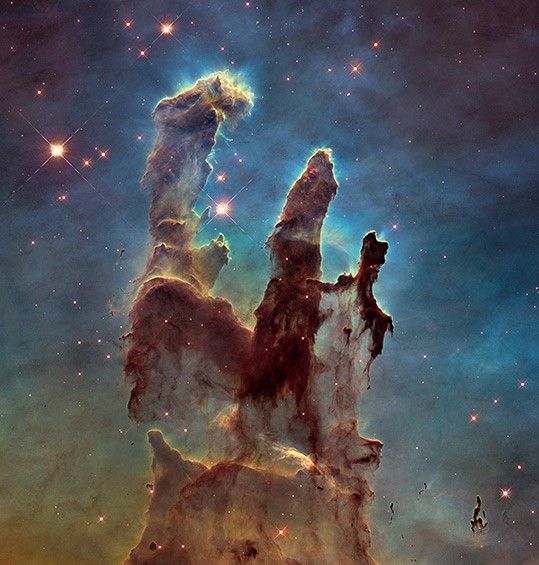1 min read
Trans-Neptunian Object

This is an artist's concept of a craggy piece of solar system debris that belongs to a class of bodies called trans-Neptunian objects (TNOs). Most TNOs are small and faint, making them difficult to spot. Generally, they are more than 100 million times fainter than objects visible to the unaided eye. The newfound TNOs range from 25 to 60 miles (40-100 km) across. In this illustration, the distant Sun is reduced to a bright star at a distance of over 3 billion miles. Astronomers culling the data archives of NASA's Hubble Space Telescope have added 14 new TNOs to the catalog. Their search method promises to turn up hundreds more.
About the Data
- Data DescriptionData DescriptionProposal: A description of the observations, their scientific justification, and the links to the data available in the science archive.
Science Team: The astronomers who planned the observations and analyzed the data. "PI" refers to the Principal Investigator.The science team includes: C. Fuentes, M. Holman, and P. Protopapas (Harvard-Smithsonian Center for Astrophysics) and D. Trilling (Northern Arizona University). The datasets used in this release are from the following HST proposals: 9418, 9476, 9722, 10216, 10493, 10494, 10496, 10551, 10592, 10787, and 10886. - InstrumentInstrumentThe science instrument used to produce the data.HST>ACS/WFC
- Object DescriptionObject DescriptionThe type of astronomical object.Trans-Neptunian Objects
- Release DateSeptember 13, 2010
- Science ReleaseHubble Harvests Distant Solar System Objects
- Credit
Share
Details
Last Updated
Aug 17, 2025
Contact
Media
Claire Andreoli
NASA’s Goddard Space Flight Center
Greenbelt, Maryland
claire.andreoli@nasa.gov





























